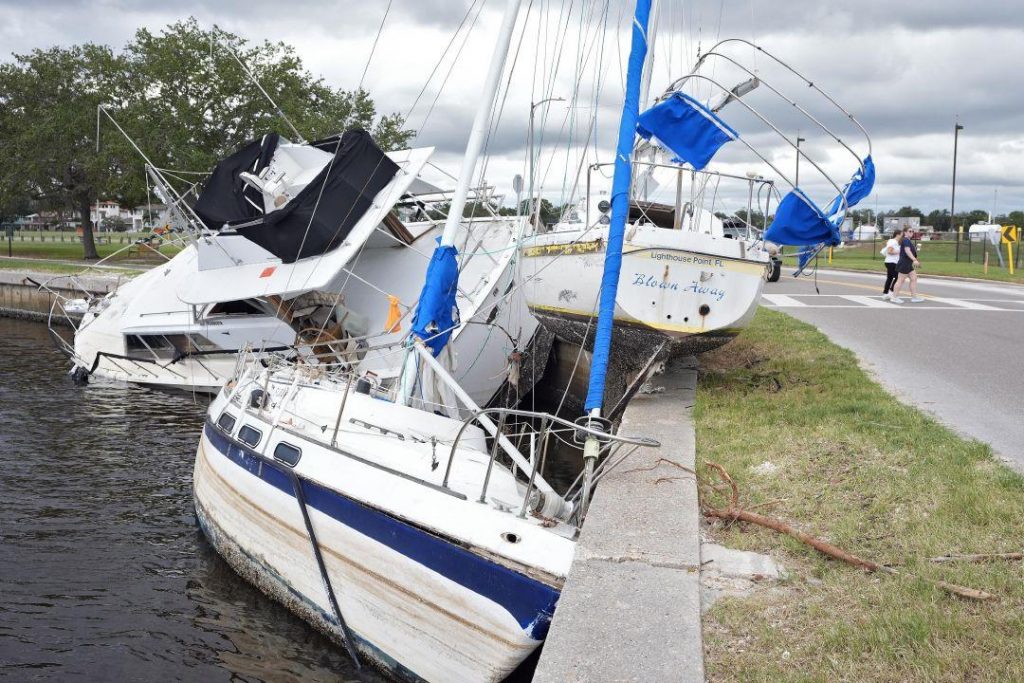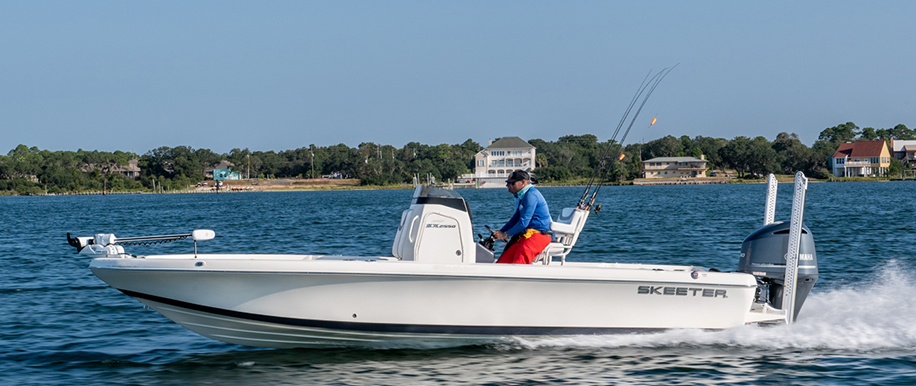Max Out Your Claim: Insider Tips to Get What You Deserve from Your Boat Insurance
Boat insurance claims can be tricky to navigate. Many boat owners don't know how to get the most from their policies. This can lead to lower payouts and frustration.
To maximize your boat insurance claim, you need to understand your coverage and follow the right steps.

The claim process starts with documenting the incident. Take photos, write down details, and get witness statements if possible. This info will support your claim.
Quick action is key. Report your claim to the insurance company as soon as you can. The faster you file, the sooner you can get your boat fixed or replaced. Know your policy details to avoid surprises during the claim process.
Key Takeaways
- Document incidents thoroughly with photos and witness statements
- File claims promptly to speed up the settlement process
- Understand your policy coverage before making a claim
Understanding Boat Insurance Coverage
Boat insurance protects you financially if something happens to your vessel. It covers different risks and situations that can occur on the water or while your boat is docked.
Types of Coverage
Boat insurance policies often include several types of coverage. Liability coverage pays for damage you cause to others. It's a key part of most policies.
Property coverage protects your boat itself. This can include comprehensive and collision coverage. Comprehensive covers theft, vandalism, and weather damage. Collision pays for crashes with other boats or objects.
Some policies offer additional coverage types:
- Fuel spill liability
- Wreck removal
- Personal effects coverage
- Towing and assistance
Limits and Exclusions
Every boat policy has limits on how much it will pay. Higher limits cost more but give you more protection. Common exclusions include:
- Normal wear and tear
- Damage from insects or animals
- Manufacturer defects
Salvage coverage may have limits too. This pays to remove your boat if it sinks. Check your policy carefully to understand what's not covered.

Assessing Your Coverage Needs
To figure out how much coverage you need, think about:
- Your boat's value
- Where you use it
- How often you use it
- What you can afford to pay out of pocket
Bigger, more expensive boats need more coverage. If you take long trips or go to risky areas, you may want extra protection.
Consider getting an agreed value policy. This pays a set amount if your boat is totaled. It can be better than actual cash value, which may pay less as your boat gets older.
Review your policy yearly. Your needs may change as your boat ages or your usage changes.
The Insurance Claims Process
The insurance claims process involves several key steps to get fair compensation for your boat damage. Knowing what to expect can help you navigate the process more effectively.
Reporting the Claim
When your boat is damaged, act fast. Contact your insurance agent or claims department right away. Many policies have time limits for reporting incidents.
Give clear details about what happened. Include:
- Date and time of the event
- Location
- Weather conditions
- Damage extent
- Injuries (if any)
Take lots of photos and videos. This visual proof will support your claim.
Keep all receipts for emergency repairs. Your policy may cover these costs.

Assessment and Investigation
After you report the claim, the insurance company starts their investigation. They'll assign an adjuster to your case.
The adjuster will:
- Inspect the boat damage
- Review your policy details
- Ask for more information if needed
Be ready to show maintenance records. These prove you've taken good care of your boat.
The insurance company might bring in experts. They could ask marine surveyors or mechanics to assess complex damage.
Stay in touch with your adjuster. Ask questions if you're unsure about anything.
Settlement and Compensation
Once the investigation is done, the insurance company decides on your payout. They'll send you a settlement offer.
Review this offer carefully. Make sure it covers all the damage. If you disagree, you can appeal.
Know the deadlines for accepting or appealing the offer. Don't rush, but don't miss important dates.
If you accept, you'll get your payment. This might be a lump sum or paid directly to repair shops.
Remember, you can update your claim if you find more damage later. Keep checking your boat as repairs progress.
Maximizing Your Claim
To get the most from your boat insurance claim, take quick action and keep detailed records. Focus on preventing more damage, documenting everything, and getting expert assessments.
Prevent Further Damage
When your boat is damaged, act fast to stop things from getting worse. Remove water from the boat to prevent mold and rot. Cover any holes or cracks to keep rain out. Move the boat to a safe place if possible.
For electrical issues, disconnect the batteries. This helps avoid fires or more damage to wiring. If there's a fuel leak, close all valves and don't start the engine.
Call your insurance company right away. They can guide you on immediate steps to take. Some policies cover the cost of emergency repairs to prevent more damage.

Accurate Documentation
Take many photos of all damage. Get close-up shots and wider views. Make a list of every damaged item. Write down when and how the damage happened.
Keep all receipts for repairs or supplies you buy. Note the date, cost, and reason for each purchase. If you can't use your boat, track the days you miss out.
Save any weather reports or police records related to the incident. These help prove your claim. Write down names and contact info for any witnesses.
Expert Assessment
Hire a marine surveyor to inspect your boat. They give a detailed report on the damage and repair costs. This helps you get a fair payout from the insurance company.
Get repair quotes from at least two boat repair shops. Make sure they list all needed fixes and parts. Ask them to note if any damage might cause problems later.
Consider hiring a public adjuster. They work for you, not the insurance company. Public adjusters often help get larger payouts for boat insurance claims.
If the damage is big, talk to a lawyer who knows boat insurance. They can spot if the insurance company isn't being fair. Lawyers also help if your claim gets denied.
What to Do After a Boating Accident
Quick action and proper documentation are key after a boating accident. Following the right steps can help ensure your safety and maximize your insurance claim.
Immediate Steps
First, check if anyone needs medical help. Call emergency services right away if needed. Move your boat to a safe spot if possible.
Take photos of all damage to your boat. Get contact info from others involved and any witnesses. Write down what happened while it's fresh in your mind.
Report the accident to the proper authorities. This might be the Coast Guard or local police. Don't admit fault or make deals with other boaters.
Call your insurance company as soon as you can. Give them basic facts about what happened. Ask about next steps for filing a claim.

Long-Term Repair and Compensation
Review your boat insurance policy. Know what's covered and what's not.
Ask your agent to explain anything you don't understand.
Get repair estimates from trusted shops. Keep all receipts for accident-related costs.
File your claim promptly. Provide all info the insurance company asks for. This helps speed up the process.
Be patient but stay in touch with your insurer. Ask for updates if you don't hear back.
Keep a log of all communications.
Consider hiring a public adjuster or lawyer if the claim is large or complex. They can help you get fair compensation.
Don't rush to accept the first offer. Make sure it covers all your costs and losses before you agree.
Dealing with Specific Incidents
Boat insurance claims vary based on the type of incident. Each situation requires specific steps to ensure fair compensation. Let's look at how to handle common scenarios.
Theft and Vandalism
When your boat is stolen or vandalized, act fast. Report the incident to the police right away. Get a copy of the police report for your insurance claim.
Take photos of any damage from vandalism. Make a list of stolen items. Include serial numbers if you have them.
Contact your insurance company promptly. Provide all evidence and documentation. This helps speed up the claim process.
Keep receipts for any emergency repairs. Your policy may cover these costs. Don't make major repairs without insurer approval.
Collision and Grounding
If your boat hits another vessel or runs aground, safety comes first. Check for injuries and call for help if needed.
Document the scene. Take photos of all damage. Get contact info from other boaters involved. Write down what happened while it's fresh in your mind.
Report the incident to your insurer quickly. They may send an adjuster to inspect the damage. Don't start repairs without their okay.
If you hit a submerged object, look for hull damage. Even small cracks can lead to big problems later.
Natural Disasters
Storms, floods, and other natural events can wreak havoc on boats. Check your policy for covered perils.
After a disaster, assess and document all damage. Take photos and videos. Make a detailed list of affected items.
Prevent further damage if possible. Cover holes in the hull. Remove water to prevent sinking. Keep receipts for these efforts.
File your claim promptly. Insurers often face many claims after disasters. Quick action can help you get faster service.
Additional Coverage Options
Boat insurance policies offer several extras beyond basic coverage. These options protect you from unexpected costs and provide peace of mind on the water.
Towing and Assistance
Towing coverage helps when your boat breaks down on the water. It pays for towing to the nearest repair facility. This service can save hundreds of dollars in emergency situations.
Many policies include 24/7 on-water assistance. This covers fuel delivery, battery jumps, and minor repairs. Some insurers partner with specialized marine assistance companies.
Towing coverage often has a per-incident limit. Boat owners should check this limit and consider their typical boating areas. Offshore boaters may need higher limits due to longer tow distances.
Trailer and Transport
Trailer insurance protects your boat during transport. It covers damage to the trailer and boat while on the road.
This coverage extends to accidents, theft, and vandalism. It's crucial for boats frequently moved between locations.
Some key points about trailer coverage:
- It may have separate deductibles from the main boat policy
- Coverage limits should match the value of both trailer and boat
- Some policies include roadside assistance for trailer breakdowns
Owners should review their auto insurance to avoid gaps or overlaps in coverage.
Medical and Liability
Medical coverage pays for injuries to the boat owner, passengers, and water skiers. It helps with medical bills, lost wages, and other injury-related costs.
Liability protection covers legal expenses if someone sues after an accident. It's essential for all boat owners, especially those who frequently have guests aboard.
Key features of medical and liability coverage:
- Per-person and per-accident limits
- Coverage for legal defense costs
- Protection against uninsured boaters
Some policies offer additional medical payments for serious injuries. This can cover long-term care or rehabilitation costs.
Boat owners should consider their typical activities and passenger count when choosing limits. Higher-risk uses like water skiing may require more coverage.
Insurance Discounts and Savings
Boat owners can save money on their insurance premiums by taking advantage of various discounts. Many insurers offer savings for safe boating practices and preventive measures.
One common discount is for completing a boating safety course. This shows insurers that the owner is knowledgeable about proper boat operation and safety procedures.
Installing safety devices can also lead to savings. Discounts may be available for boats equipped with:
- Fire extinguishers
- Carbon monoxide detectors
- GPS tracking systems
- Anti-theft devices
Maintaining a clean driving and boating record can result in lower premiums. Many insurers offer discounts for accident-free years.
Bundling boat insurance with other policies, such as home or auto insurance, often leads to multi-policy discounts. This can save boat owners money on their overall insurance costs.
Paying the full annual premium upfront instead of monthly installments may qualify for a discount. Some insurers also offer loyalty discounts for long-term customers.
Boat owners should ask their insurance provider about all available discounts. Taking advantage of these savings can significantly reduce the cost of comprehensive boat insurance coverage.
The Role of Insurance Companies
Insurance companies play a key part in the boat insurance claim process. They assess damages, determine coverage, and decide on payouts.
When you file a claim, the insurer reviews your policy details. They check if the incident is covered and what limits apply.
Insurance companies often send adjusters to inspect boat damage. These experts evaluate repair costs and recommend settlement amounts.
Insurers provide clear guidelines and instructions to help boat owners navigate the claims process. This includes:
- Steps to file a claim
- Required documents
- Important deadlines
Insurers aim to settle claims fairly and quickly. But they also protect their interests by watching for fraud or exaggerated damages.
Some insurance companies offer extra help through the claims process. This might include:
- Recommending repair shops
- Arranging temporary transportation
- Answering questions about coverage
Insurers and claimants may disagree on settlements. In these cases, negotiation skills can be crucial for boat owners seeking fair compensation.
Insurance companies must follow state rules and regulations. This helps ensure they treat policyholders fairly during the claims process.
Frequently Asked Questions
Filing a boat insurance claim can be complex. These questions address key aspects of the process, from gathering evidence to negotiating with adjusters.
What steps should I take to strengthen my insurance claim?
Act quickly after an incident. Document the damage with photos and videos. Contact your insurance company right away to report the claim.
Keep detailed records of all conversations with your insurer. Save receipts for any repairs or expenses related to the incident.
What evidence is crucial for maximizing my boat insurance claim?
Photos and videos of the damage are essential. Gather witness statements if possible. Obtain repair estimates from reputable boat repair shops.
Provide maintenance records to show proper upkeep of your vessel. Include police reports if applicable to the incident.
How can I effectively negotiate with my insurance adjuster?
Be prepared with all relevant documents and evidence. Stay calm and professional in all interactions. Ask questions to understand the adjuster's reasoning for their offer.
Don't accept the first offer if it seems low. Provide clear justification for why you believe you deserve more compensation.
What are common mistakes to avoid when filing a boat insurance claim?
Delaying the claim filing process is a major error. Failing to document damage thoroughly can hurt your case. Accepting a settlement too quickly without fully assessing damages is risky.
Providing inconsistent statements to the insurer can raise red flags. Not reading and understanding your policy terms before filing is also problematic.
How does the assessment process affect my boat insurance claim value?
The assessment determines the extent of damage and repair costs. An adjuster will inspect your boat and review all evidence provided.
The adjuster's report influences the claim value. Getting independent assessments can help if you disagree with the insurer's valuation.
In what circumstances can my boat insurance claim be denied and how to prevent this?
Claims may be denied for policy violations or exclusions. Operating the boat while intoxicated often leads to denials.
Lack of proper maintenance can also result in claim rejection.
To prevent denials, familiarize yourself with your policy terms. Follow all safety regulations.
Keep your boat well-maintained and document all upkeep.
Charlie is Editor-in-Chief of Sea Magazine







